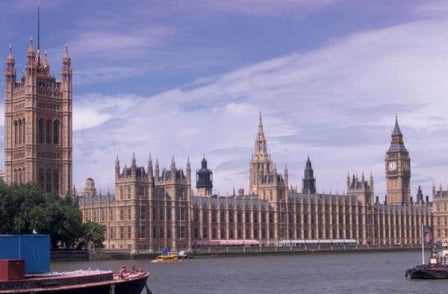
Journalists are set to have greater protection from being sued for libel after the Defamation Bill was passed by the Commons yesterday.
The long-awaited Defamation Act now needs to be enacted by the Government via a statutory instrument.
The law cleared its final Parliamentary hurdle after MPs did not contest a new amendment restricting the ability of companies to sue for libel.
Under the new law bodies trading for profit will be asked to show that the words complained of caused, or are likely to cause, serious financial loss.
A further amendment suggesting that private companies performing public functions should be barred from suing for libel was not passed. However, the common law principle stands that local authorities cannot sue for libel.
The other main aspects of the final Bill are as follows:
- A serious harm test is introduced which says that a statement is not defamatory unless it has caused or is likely to cause serious harm to the reputation of the claimant
- A public interest defence for journalism is introduced into statute for the first time and abolishes the Reynolds defence. Defendants will be asked to show that they "reasonably believed that publication was in the public interest" to be able to use the defence
- Qualified privilege is extended to peer reviewed statements in scientific and academic journals and reports of proceeding of government from anywhere in the world, international conferences and international court proceedings. This means that fair and accurate reporting about any of these things will be protected from libel
- The single publication rule is scrapped. This means that the one-year time limit on libel actions starts with the first publication, and does not start again every time an article is downloaded from the internet
- The law takes action on libel tourism by saying that a libel action against a person who does not live in Europe can only be heard in London if the claimant can show that England is the most appropriate place.
The final Bill has been welcomed by campaign groups Sense About Science, Index on Censorship and English PEN which have been at the forefront of the Libel Reform Campaign.
Index on Censorship chief executive Kirsty Hughes said: "The Defamation Bill is a major advance for freedom of expression both here at home and abroad. For too long, free speech was chilled, restrained and threatened by our archaic libel laws, that were a laughing stock around the globe. Even President Obama passed laws to protect US citizens from its effects.
"We now have a Defamation Bill that will strengthen freedom of expression, end the global chill from libel tourism and prevent corporations from suing citizen critics. This is the first wholesale libel reform since 1843, so our 60,000 supporters can be pleased that their support has helped make a real change."
Journalist and writer Simon Singh, who was himself the target of a protracted libel dispute after he raised health concerns about chiropractic medicine in a Guardian article, has also welcomed the Bill.
He said: "This is an extraordinary story of cross-party collaboration, fired up by a grass roots campaign, backed by everyone from nerds to Mumsnet, which includes mums who are also nerds.
"Four years ago, libel reform was not an issue that anybody cared about, but I have witnessed first hand how charities, bloggers, MPs, Lords and a multitude of others pushed this issue up the agenda, into manifestos, into the Queen’s Speech and now, at last, we have a Defamation Bill that will change the landscape of free speech in Britain."
Email pged@pressgazette.co.uk to point out mistakes, provide story tips or send in a letter for publication on our "Letters Page" blog
